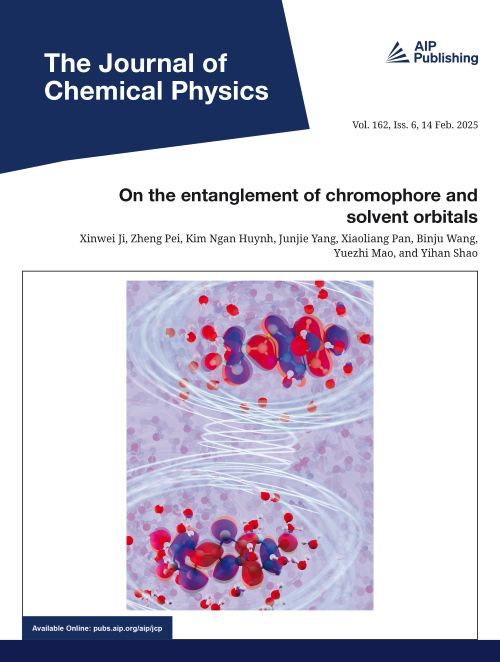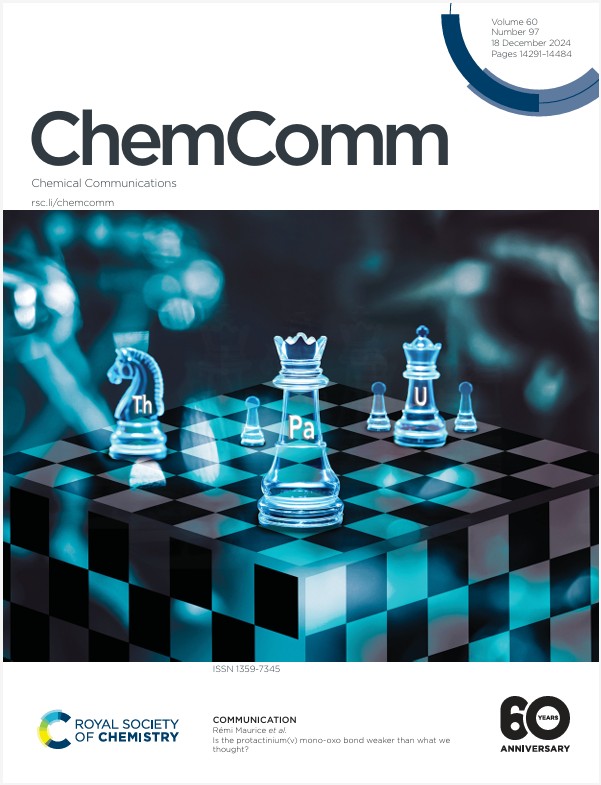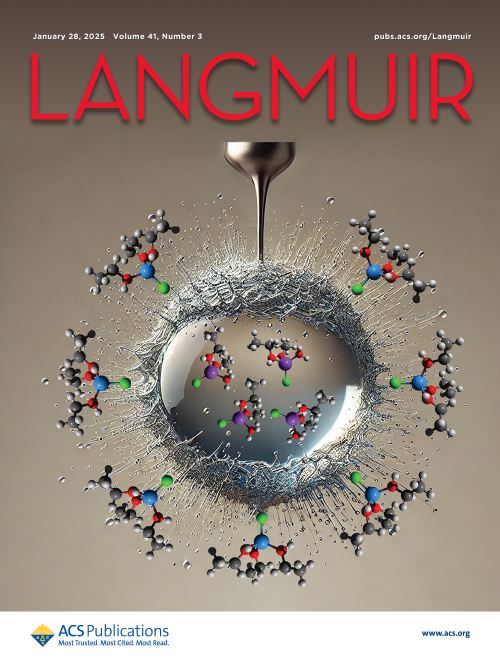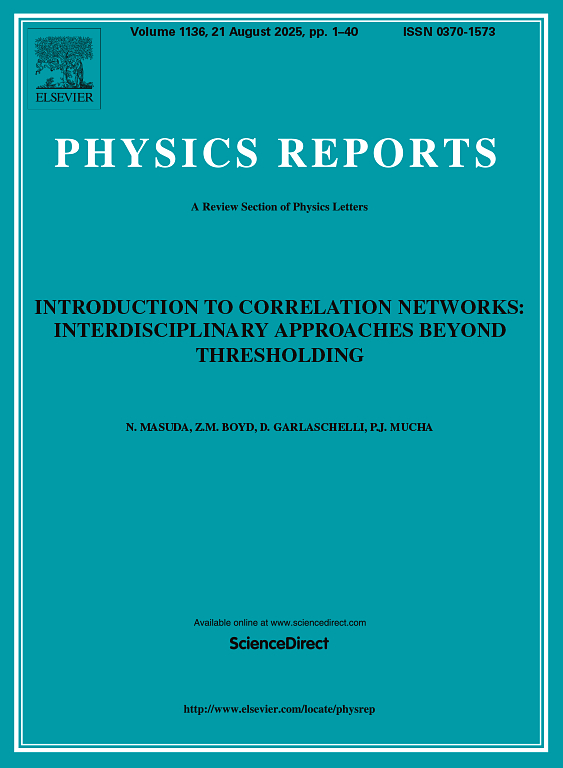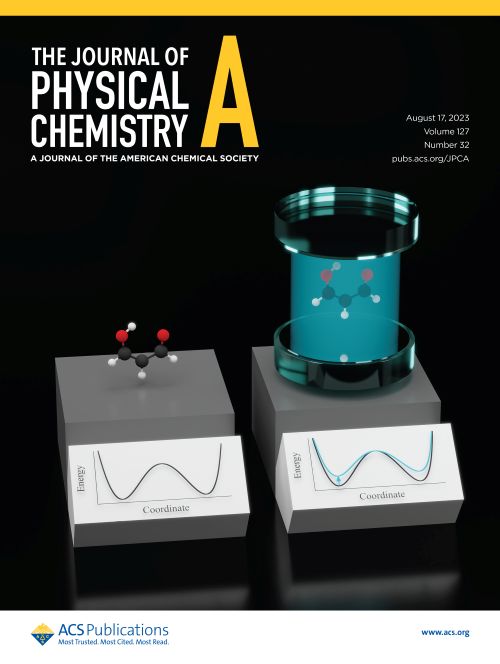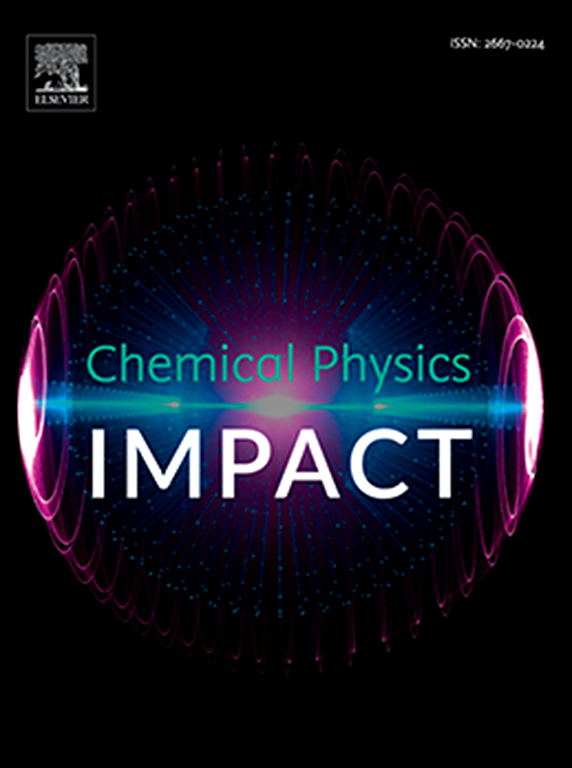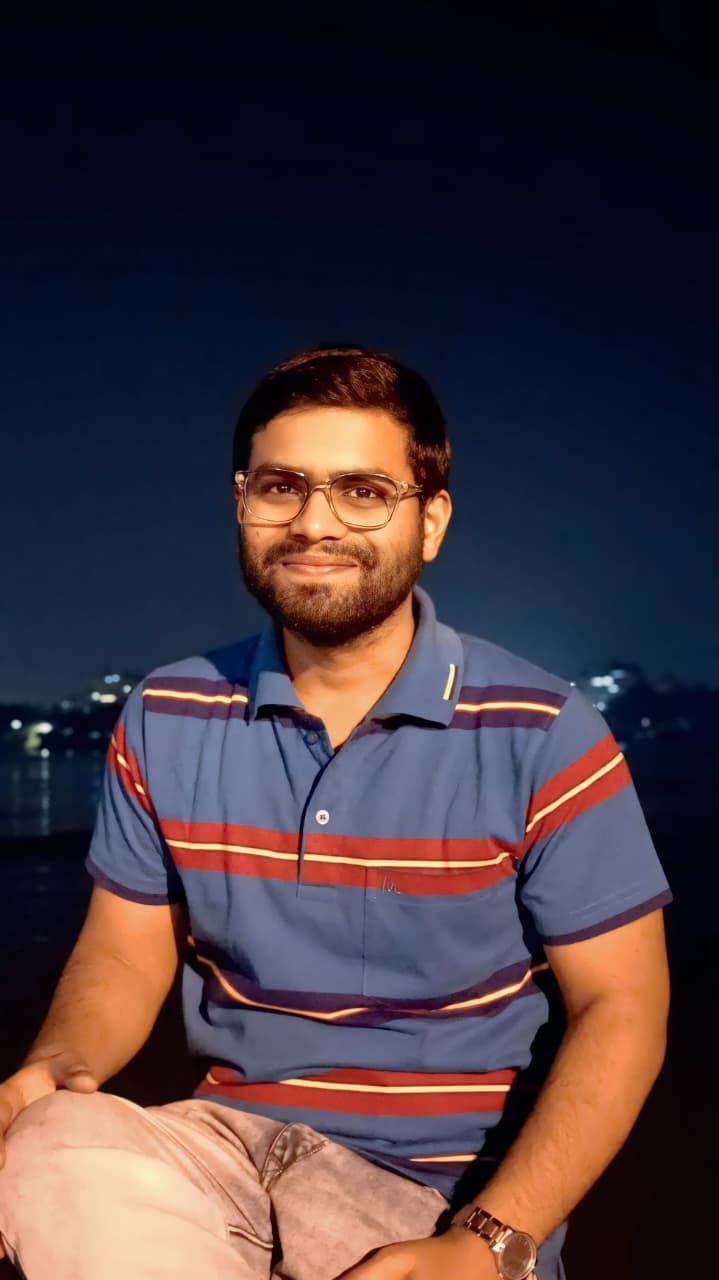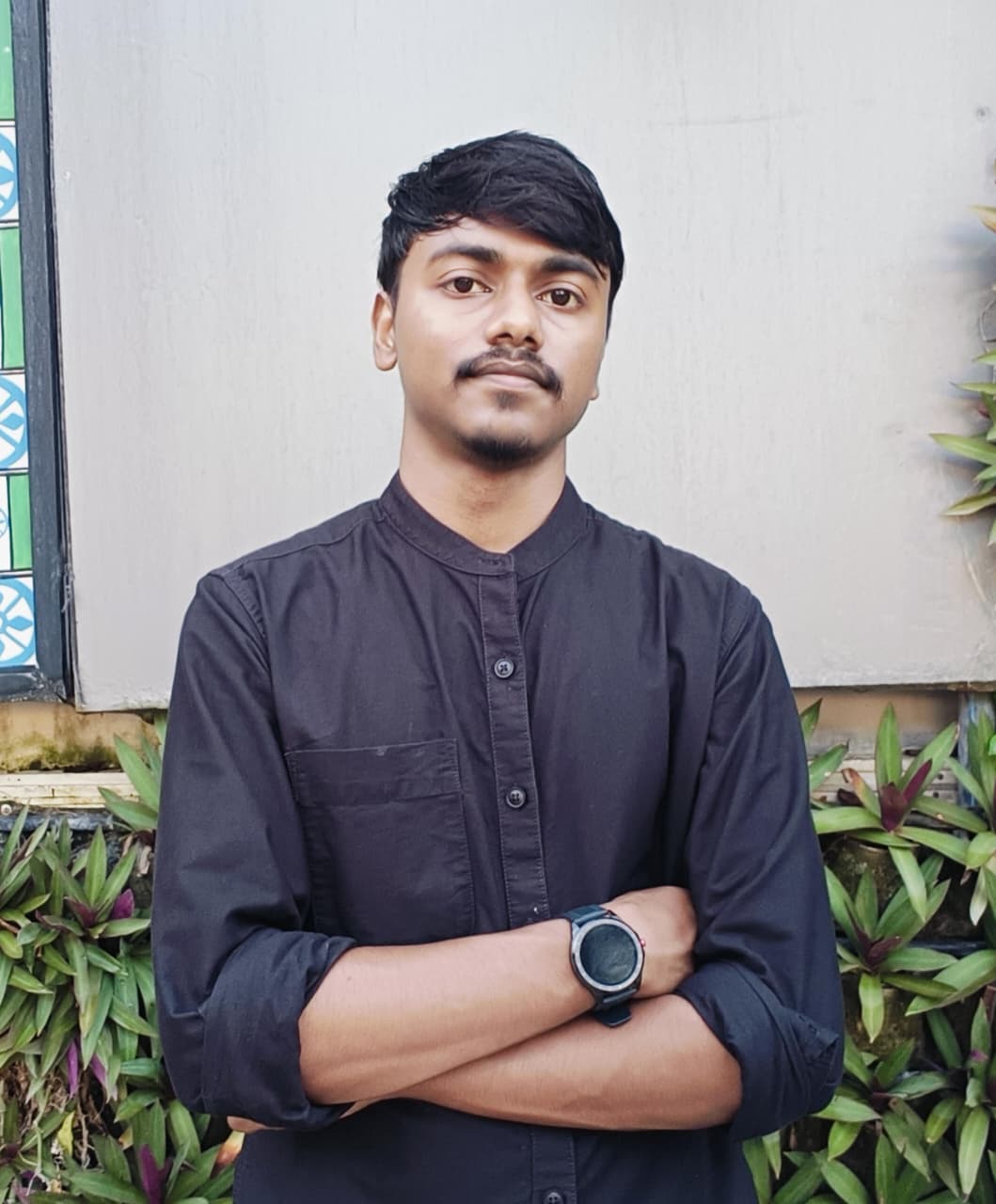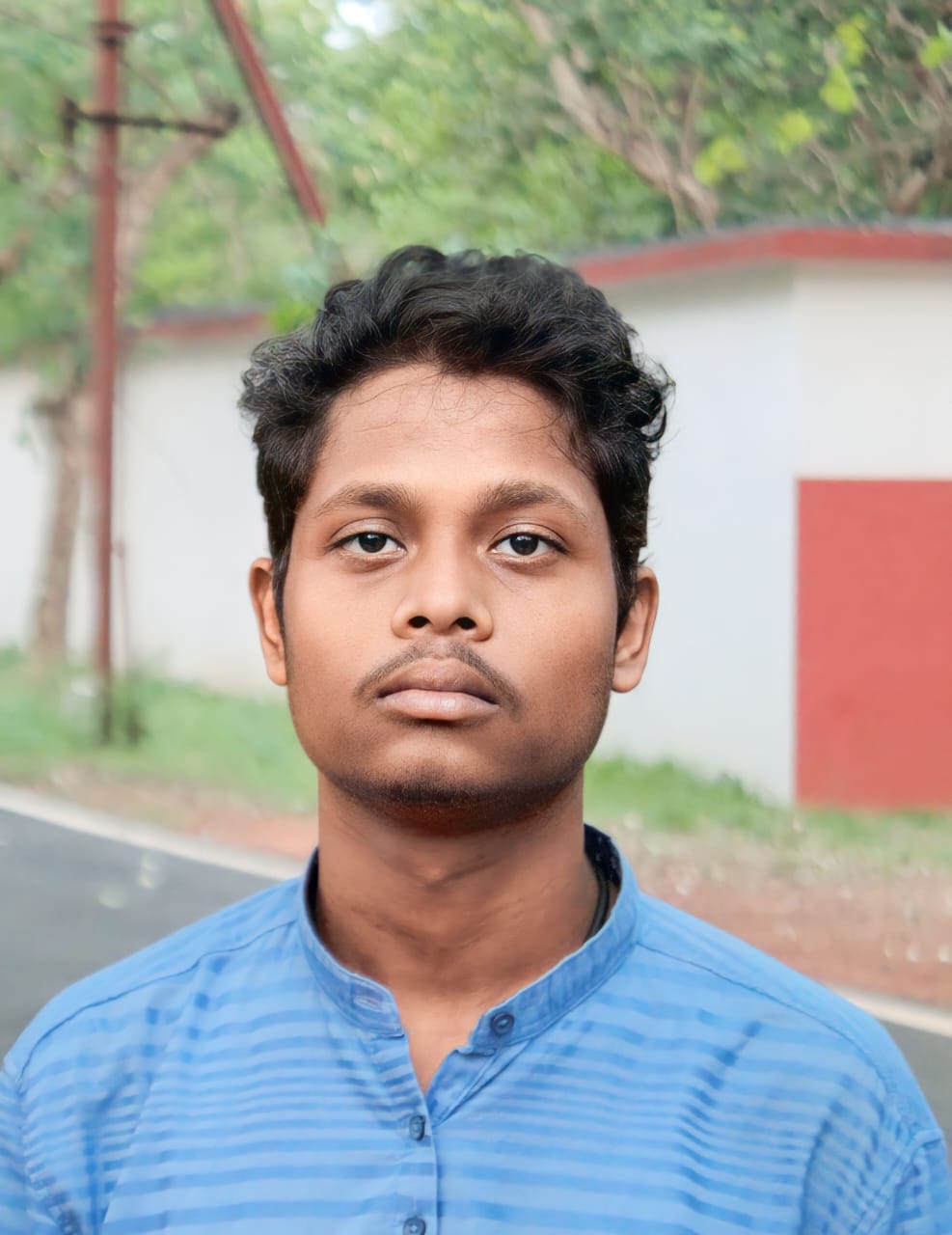
Amit Kumar Paul
Associate Professor
Amit Kumar Paul
Associate Professor, Chemical Sciences
PhD: IACS Kolkata, 2013
Previous appointments:
Post Doctoral Research Associate, Texas Tech University, Feb. 2013 - June 2016 (with Prof. William L. Hase)
Assistant Professor, Department of Chemistry, NIT Meghalaya, June 2016 - Dec. 2023
Associate Professor, Department of Chemistry, NIT Meghalaya, Dec 2023 - May 2024
Check out my personal website
Research interests:
Current Research Interests:
1. Chemical
Dynamics Simulations using Machine Learning Approaches
2. Chemical dynamics
simulations on reaction dynamics,Studies of chemical reactions in condensed
phase
3. Energy Transfer
dynamics in gas and condensed phase,Semiclassical dynamics on nonadiabatic
processes
4. QM+MM dynamics in condensed phase
molecular system
5. Quantum dynamics on adiabatic
and diabatic potential energy surfaces
Contact:
| Address: |
Chemical Sciences Unified Academic Campus Bose Institute EN-80, Sector V Bidhan Nagar Kolkata - 700 091, India |
| E-Mail: | amit.paul[at]jcbose.ac.in |
Research:
1.
Chemical
Dynamics Studies using Machine Learning Approaches
Using
machine-learned potential energy surfaces for the dynamics is an active field
of research now-a-days. In our group, we are working on developning ML-based
potential energy surfaces. In addition, we are looking at the prediction of the
simulated properties, without actually running the simulations. [J. Chem. Phys.
158, 194104 (2023)]
2.
Simulating
Intermolecular Collisional Energy Transfer and Chemical Reaction in Bath Model
A
simulation bath model has been developed [J. Chem. Phys. 140, 194103 (2014)] to
study collisional energy transfer phenomena. In this model, a 3D box
implemented with periodic boundary conditions can be taken with a thousand or
more solvent molecules. Any solvent bath density from liquid to gas can be
considered. Collisional energy transfer as well as chemical reactions can be
studied in this model. In the group, we have been performing many such
projects.
3. Unimolecular Dissociation Reaction
Unimolecular
dissociation is studied by chemical dynamics simulations of randomly excited
clusters of aromatic molecules. Benzene dimer, benzene-hexafluorobenzene,
benzene-hexachlorobenzene, etc. are studied at a temperature range of 700-2000
K. This temperature range is relevant for combustion chemistry. These studies
provide detailed knowledge of their bindings and dynamical aspects.
4. Electronic Non-adiabatic Dynamics in Gas and Condensed Phase
It
is well known that a strong or even a moderate coupling between the electronic
states breaks down the Born-Oppenheimer (BO) approximation and the inclusion of
non-adiabatic coupling terms into the Schrödinger equation becomes important. In
spite of its wide applicability, a fully quantum mechanical dynamics is still
impossible even with a huge computation facility of current time for systems of
many degrees of freedom. Therefore, the classical mechanical molecular dynamics
will be used as the workhorse for many coming years as well. It is of interest
for our group is to study photochemical reactions of molecular systems using semiclassical
molecular dynamics simulations.
5. Development of Two-Body Potential Energy Function
The
potential energy surface (PES) of a molecular system holds many of its chemical
properties. Dynamics, which is nothing but the spatial evolution of nuclei
around the PES with time. The chemical dynamics simulations performed nowadays
involve the integration of the classical equations of motion (Newtonian or
Langevin), calculating the forces on atoms at each step either directly by
electronic structure calculations, called direct dynamics or from analytical
PES. Even for small-size systems, the use of an analytical surface may be a
convenient choice. GAfit is a genetic algorithm-based software which can
parameterize PES in an easier way. It needs the atom-atom distances for a
particular orientation and the energy value. The software can fit them
simultaneously and provide generalized atom-atom potential in form of
Buckingham, modified Buckingham, Lennard-Jones, or any other functional form.
This is indeed a very powerful tool to parameterize PES for dynamics of larger
system as well as system that is unstable in direct dynamics. In our group, we
develop very accurate force field parameters required for our dynamics.
Publications:
Selected Journals of our Publications
Complete List of Publications:
2025
66. S. Chakrabarty, S. Raha, Basudha Deb, S. Saha, A. K. Paul,* A. Ghosh*, DNA Base Pair Mediated Vibrational Coupling! An Adenine-Thymine Base Pair Study, Submitted to Adv. Theo. Simu.
65. K. Dey, P. J. Boruah, M. K, N. K. Nath, and A. K. Paul*, Effects of Electron-Withdrawing and Donating Group Substituents on the Photodissociation Reaction of Diazirine: An Electronic Structure and Non-Adiabatic Molecular Dynamics Study, Accepted in Adv. Theo. Simu.
64. B. Deb, N. Yal, H. Mahanta*, and A. K. Paul*, Chemical Dynamics Simulations on the Association and Ensuing Dissociation of the Benzene–Hexachlorobenzene Complex and Comparison with Benzene Dimer and Benzene–Hexafluorobenzene Complexes, Accepted in J. Chem. Sci.
63. M. S. Yadav and A. K. Paul*, Enhancement of Complexation due to the Effect of a Bath: A van der Waals Complex in N2 Bath, Phys. Chem. Chem. Phys. 27, 24225-24237 (2025)
62. S. Saha, S. Chakrabarty, B. Deb, S. Raha, A. K. Paul,* A. Ghosh*, Probing Intramolecular Vibrational Coupling between C=C Ring and Amide I modes in Quinolinone Derivatives: Insights from DFT and Molecular Dynamics Simulations, J. Phys. Chem. A 129, 8935 (2025).
61. P. J. Boruah, Venkatesh N, A. Samanta, and A. K. Paul*, Effect of Substitution on Excited State Intramolecular Proton Transfer Reaction of Substituted p-amino-o-hydroxy Benzaldehyde, Chem. Asian J. 20, e00777 (2025)
60. M. S. Yadav, S. S. Ahamed, and A. K. Paul*, Analytic Potential Energy Functions for Benzene-Water Interactions Based on Accurate Ab initio Calculations and Ghost Atom Formalism, Phys. Chem. Chem. Phys. 27, 16923-16934 (2025)
59. A. Agarwal, A. K. Paul*, “Exploring the Competition between Energy Transfer and Reaction Rate in Post-TS Dynamics of Catechol's Ozonolysis” a Book chapter in the SPRINGER NATURE Book Series, entitled Progress in Theoretical Chemistry and Physics, as part of the proceedings of the 26th QSCP, pp 227-255 (2025).
58. P. R. Chowdhury, B. Deb, A. K. Paul*, N. G. Patwari*, Local dynamics control the C–CX3 (X = H and F) bond photodissociation in acetylacetones, J. Chem. Phys. 162, 064305 (2025)
57. P. Singh, M. Yadav, S. Kuila, A. K. Paul, D. Ray, S. Misra, J. Naskar, V. Aswal, J. Nanda, Supramolecular Gelation Based on Native Amino Acid Tyrosine and Its Charge-Transfer Complex Formation, Langmuir 2025, 41, 3, 1639–1650
2024
56. M. Z. Hussain, E. Myrsing, H. M. C. Mouli, K. Dey, S. Khajuria, A. K. Paul, A. Sahu, and A. Jana, Exploring Anticancer Potential of Furopyrano[3,4-b]indole via Graphene Oxide-Catalyzed Aqueous Synthesis, ChemistrySelect, 9, 48, e202404316
55. S. Dey, A. Das, R. N. Yadav, P. J. Boruah, K. Sarkar, A. K. Paul, and Md. Firoj Hossain, Electron donor–acceptor complex enabled photocascade strategy for the synthesis of trans-dihydrofuro[3,2-c]chromen-4-one scaffolds via radical conjugate addition of pyridinium ylide, Chem. Commun., 2024,60, 14384-14387
54. P. J. Boruah, Venkatesh N, A. Samanta*, A. K. Paul*, A Detailed Theoretical Investigation on Intramolecular Charge Transfer Mechanism of Primary, Secondary, and Tertiary p-amino Substituted Benzaldehyde, Chem. Phys. Impact 8, 100538 (2024) (Special Issue: Recent Trends of Physical Chemistry in India)
53. A. Agarwal and A. K. Paul*, Details of Exit Channel Dynamics of the Ozonolysis of Catechol in Condensed Phase: Product Channels and Product Energy Partitioning, Chemical physics Impact 8 (2024) 100440
52. A. Das, S. Dey, R. N. Yadav, P. Dutta, S. Dhiman, P. Boruah, K. Sarkar, A. Sahu, A. Jana, A. K. Paul*, and M. F. Hossain, Unleashing Naphthopyranopyrimidine's Anticancer Potential: A Deep Eutectic Solvent (DES) Study, New J. Chem., 2024,48, 7566-7578
51. B. Deb, H. Mahanta, N. P. Baruah, M. Khardewsaw, and A. K. Paul* On the Intramolecular Vibrational Energy Redistribution Dynamics of Aromatic Complexes: A Comparative Study on C6H6 - C6H5Cl, C6H6 - C6H3Cl3 , C6H6 - C6Cl6 and C6H6 - C6H5F, C6H6 - C6H3F3 , C6H6 - C6F6. J. Chem. Phys. 160, 024307 (2024)
50. P. J. Boruah, M. Debnath, A. Agarwal, G. Kalita, P. N. Chatterjee*, and A. K. Paul*, A Theoretical Investigation to Understand the Difference in Reactivities of Secondary and Tertiary Propargylic Alcohols with 1,3,5-Trimethoxybenzene in Presence of Brnøsted Acid, Int. J. Chem. Kinet., 2024, 56, 9, 356-367.
2023
49. Ankita Agarwal, Shrutimala Baruah, Samir Ahmed, Palash Boruah, and A. K. Paul*, Post Transition State Direct Dynamics Simulations on the Ozonolysis of Catechol in N2 bath and comparison with gas phase dynamics J. Phys. Chem. A. 127, 6404 (2023)
48. Basudha Deb, S R Ngamwal Anal, Himashree Mahanta, Yogita, and A. K. Paul*, Unimolecular Dissociation of C6H6-C6H5Cl, C6H6-C6H3Cl3, and C6H6-C6Cl6 Complexes using Machine Learning Approach, J. Chem. Phys. 158, 194104 (2023)
47. Ankita Agarwal, A. K. Paul*, Details of Ozonolysis of Catechol at High Temperature and Product Energy Distribution, J. Chem. Sci. (2023)135:33
46. Arindam Das, Sovan Dey, Ram Naresh Yadav, Palash Jyoti Boruah, Prerana Bakli, Sourav Sarkar, Partha Mahata, A. K. Paul, Md. Firoj Hossain, An Expeditious One-Pot Two-Component Synthesis of Quinoxaline Derivatives in Natural Deep Eutectic Solvents (NADESs) , Chem.Selec. 8, e202204651 (2023)
45. Sovan Dey, Arindam Das, Ram Naresh Yadav, Palash Jyoti Boruah, Prerana Bakli, Tania Baishya, Koushik Sarkar, Anup Barman, Ranabir Sahu, Biplab Maji, A. K. Paul, Md. Firoj Hossain, Visible Light-Induced Ternary Electron Donor-Acceptor Enabled Synthesis of 2-(2-Hydrazinyl) thiazole Derivatives and The Assessment of Their Antioxidant and Antidiabetic Therapeutic Potential, Org. Biomol. Chem. 2023, 21, 1771-1779
2022
44. S. S. Ahamed, H. Mahanta, A. K. Paul*, An Advanced Bath Model to Simulate Association Followed by Ensuing Dissociation Dynamics of Benzene + Benzene System: A Comparative Study of Gas and Condensed Phase Results, Accepted in PCCP.
43. A. Agarwal, P. J. Boruah, B. Sarkar, and A. K. Paul*, Post Transition State Direct Dynamics Simulations on the Ozonolysis of Catechol. J. Phys. Chem. A 2022, 126, 32, 5314–5327
42. S. Kumar, S. Kumari, S. Singh, P. J. Boruah, A. K. Paul, P. Roy*, and H. Joshi*, Oxidized Charcoal-Supported Thiol-Protected Palladium Nanoparticles for Cross Dehydrogenative Coupling of Heteroarenes. ACS Appl. Nano Mater. 2022, 5, 2, 2644–2654.
2021
41. H. Mahanta, A. K. Paul*, Dynamical Behavior of Aromatic Trimer Complexes in Unimolecular Dissociation Reaction at High Temperatures. Case Studies on C6H6-C6F6-C6H6 and C6H6-trimer Complexes. J. Phys. Chem. A 2022, 126, 2, 259–271 (Accepted in 2021, published in 2022).
40. Shyamal Kanti Bera, Palash J. Boruah, Shraddha Saraswati Parida, Amit K. Paul* and Prasenjit Mal*, A Photochemical Intramolecular C-N Coupling Towards the Synthesis of Benzimidazole- Fused Phenanthridines. J. Org. Chem. 2021, 86, 14, 9587–9602
39. H. Mahanta and A. K. Paul*, Unimolecular Dissociation of C6H6-C6Cl6 Complex and Effect of Mode-Mode Coupling. J. Phys. Chem. A 2021, 125, 27, 5870–5877
2020
38. S. S. Ahamed, P. Kumar, H. Kalita, A. K. Paul*, Mode-to-Mode Collision Energy Transfer from Vibrationally Excited C6F6 to NO/N2 Mixed Bath with the Development of New Potential Energy Functions, Chem. Select. 5, 10475-10487 (2020). https://doi.org/10.1002/slct.202002600
37. H. Mahanta, Sumadevi N., R. Mishra, A. K. Paul*, Unimolecular Dissociation Dynamics of C6H6-C6Cl6 Complex and The Effect of Anharmonicity, Int. J. Mass. Spectro. 456, 116392 (2020). https://doi.org/10.1016/j.ijms.2020.116392
36. S. S. Ahamed, H. Kim, A. K. Paul*, N. A. West, J. D. Winner, D. A. Donzis, S. W. North, and W. L. Hase, Comparison of Intermolecular Energy Transfer from Vibrationally Excited Benzene in Mixed Nitrogen-Benzene Baths at 140 and 300 K. J. Chem. Phys. 153, 144116 (2020). https://aip.scitation.org/doi/10.1063/5.0021293
2019
35. S. S. Ahamed, H. Mahanta, A. K. Paul*, A Competition Between Dissociation Pathway and Energy Transfer Pathway: Unimolecular Dissociation of Benzene-Hexafluorobenzene Complex in Nitrogen Bath. J. Phys. Chem. A 123, 10663–10675 (2019) https://pubs.acs.org/doi/10.1021/acs.jpca.9b07258
34. S. S. Ahamed, H. Mahanta, A. K. Paul*, Unimolecular dissociation of C6H6-C6F6 complex in N2 bath and comparison with gas phase dynamics. Chem. Phys. Letts. 730, 630-633 (2019) https://doi.org/10.1016/j.cplett.2019.06.063.
33. H. Mahanta, D. Baishya, Sk. S. Ahamed, and A. K. Paul*, Chemical Dynamics Simulations on Association and Ensuing Dissociation of Benzene-Hexafluorobenzene Molecular System, J. Phys. Chem. A 123, 5019-5026 (2019). https://pubs.acs.org/doi/10.1021/acs.jpca.9b02332.
32. H. Mahanta, D. Baishya, Sk. S. Ahamed, and A. K. Paul*. A Better Understanding of the Unimolecular Dissociation Dynamics of Weakly Bound Aromatic Compounds at High Temperature: A Study on C6H6-C6F6 and Comparison with C6H6 Dimer. J. Phys. Chem. A 123, 2517-2526 (2019). https://pubs.acs.org/doi/10.1021/acs.jpca.8b12188.
2018
31. A. K. Paul, N. A. West, J. D. Winner, R. D. W. Bowersox, S. W. North, and W. L. Hase. Non-statistical intermolecular energy transfer from vibrationally excited benzene in a mixed nitrogen-benzene bath. J. Chem. Phys. 149, 134101 (2018). https://aip.scitation.org/doi/10.1063/1.5043139
30. H. N. Bhandar, X. Ma, A. K. Paul, P. Smith, and W. L. Hase. PSO Method for Fitting Analytic Potential Energy Functions. Application to I–(H2O). J. Chem. Theory Comput., 2018, 14 (3), pp 1321–1332. https://pubs.acs.org/doi/abs/10.1021/acs.jctc.7b01122
29. N. K. Nath*, M. Hazarika, P. Gupta, N. R. Ray, A. K. Paul*, E. Nauha*. Plastically bendable crystals of probenecid and its cocrystal with 4,4?-Bipyridine. J. Mol. Str. Vol. 1160, Pages 20-25, Year 2018. https://www.sciencedirect.com/science/article/pii/S0022286018300735
2017
28. A. K. Paul, D. Donzis, W. L. Hase, Collisional Intermolecular Energy Transfer from a N2 Bath at Room Temperature to a Vibrationlly “Cold” C6F6 Molecule Using Chemical Dynamics Simulations, Journal of Physical Chemistry A, Vol.-121, Issue No.-21, Page Nos - 4049-4057, Year 2017. http://pubs.acs.org/doi/abs/10.1021/acs.jpca.7b00948
2016
27. A. K. Paul and W. L. Hase, A Zero Point Energy Constraint for Unimolecular Dissociation Reactions. Giving Trajectories Multiple Chances to Dissociate Correctly, J Phys. Chem. A., Vol.-120, Page Nos -372, 2016.
26. H. Kim, A. K. Paul, S. Pratihar, and W. L. Hase, Molecular Dynamics Simulation of Intermolecular Energy Transfer : Azulene + N2 Collision, J Phys. Chem. A., Vol.-120, Page Nos -5187, 2016. http://pubs.acs.org/doi/abs/10.1021/acs.jpca.6b00893
2015
25. S. Kolakkandy, A. K. Paul, S. Pratihar, G. Barnes, and W. L. Hase, Energy and Temperature Dependent Dissociation of the Na+(Benzene)1,2 Complexes, J. Chem. Phys., Vol.-142, Page Nos -044306, 2015.
24. R. Sun, G. Granucci, A. K. Paul, M. Siebert, H. Liang, G. Cheong, W. L. Hase, and M. Persico, Potential Energy Surfaces for the HBr+ 2?3/2 and 2?1/2 Spin-Orbit States, J. Chem. Phys., Vol.-142, Page Nos -104302, 2015.
23. A. K. Paul, S. Kohale and W. L. Hase, Bath Model for N2 + C6F6 Gas-Phase Collision: Detail of Intermolecular Energy Transfer Dynamics, J. Phys. Chem. C, Vol.-119, Page Nos -14683, 2015.
22. A. K. Paul, S. Kolakkandy, and W. L. Hase, Dynamics of Na+(Benzene) + Benzene Association and Ensuing Na+(Benzene)2* Dissociation, J. Phys. Chem. A, Vol.-119, Page Nos -7894, 2015.
21. X. Ma, A. K. Paul, W. L. Hase, Chemical Dynamics Simulation of Benzene Dimer Dissociation, J Phys. Chem. A., Vol.-119, Page Nos -6631, 2015.
2014
20. A. K. Paul, S. C. Kohale, S. Pratihar, R. Sun, S. W. North, and W. L. Hase, A Unified Model for Simulating Liquid and Gas Phase Intermolecular Energy Transfer. N2 + C6F6 Collisions, J. Chem Phys., Vol.-140, Page Nos -194103, 2014.
2013
19. A. K. Paul, S. Kolakkandy, S. Pratihar, and W. L. Hase, Computation of Intrinsic RRKM and Non-RRKM Unimolecular Rate Constants. Chapter 20 of the book titled: "Reaction Rate Constant Computation: Theory and Computation", Pub: Royal Society of Chemistry, Eds: Keli Han, and Tianshu Chu, p. 494 (2013).
18. S. Sardar, S. Mukherjee, A. K. Paul, and S. Adhikari, Conical intersections between X2A1 and A2B2 electronic states of NO2, Chem. Phys., Vol.-416, Page Nos -11, 2013.
17. S. Mukherjee, S. Bandyopadhyay, A. K. Paul and S. Adhikari, Construction of Diabatic Hamiltonian Matrix from ab Initio Calculated Molecular Symmetry Adapted Nonadiabatic Coupling Terms and Nuclear Dynamics for the Excited States of Na3 Cluster, J. Phys. Chem. A, Vol.-117, Page Nos -3475, 2013.
16. M. Paranjothy, R. Sun, A. K. Paul, and W. L. Hase, Models for Intrinsic Non-RRKM Dynamics. Decomposition of the SN2 Intermediate Cl––CH3Br, Z. Phys. Chem., Vol.-227, Page Nos -1361, 2013.
15. S. Mukherjee, S. Bandyopadhyay, A. K. Paul and S. Adhikari, The molecular symmetry adapted non - adiabatic coupling terms and diabatic Hamiltonian matrix, Journal of Physics: Conference Series, Vol.-428, Page Nos -012008, 2013.
2012
14. A. K. Paul, S. Ray and S. Adhikari, Adiabatic to Diabatic transformation and nuclear dynamics on diabatic Hamiltonian constructed by using ab initio potential energy surfaces and non - adiabatic coupling terms for excited states of Sodium trimer, Chapter in Proceedings of JT 2010, Pub: Springer, Eds: M. Atanasom and C. Dual. p. 281 (2012).
2011
13. S. Sardar, A. K. Paul, R. Sharma, and S. Adhikari, A classical trajectory driven nuclear dynamics by a parallelized quantum classical approach to a realistic model Hamiltonian of benzene radical cation, Int. J. Quan. Chem., Vol.-111, Page Nos -2741, 2011.
12. A. K. Paul, S. Ray, D. Mukhopadhyay and S. Adhikari, Conical intersections in 22E’ states of Na3 cluster, Chem. Phys. Letts., Vol.-508, Page Nos -300, 2011.
11. A. K. Paul, S. Ray, D. Mukhopadhyay and S. Adhikari, Ab initio calculations on the excited states of Na3 cluster to explore beyond Born – Oppenheimer theories: Adiabatic to diabatic PESs and nuclear dynamics, J. Chem. Phys., Vol.-135, Page Nos -034107, 2011.
2010
10. A. K. Paul, B. Sarkar and S. Adhikari, Single surface beyond Born - Oppenheimer equation for the excited states of Sodium trimer, Chapter in Recent Advances in Spectroscopy, Pub: Springer Verlag, Eds: Chaudhuri, R. K.; Mekkaden, M.V.; Raveendran, A.V.; Satya Narayanan, A. (2010) p. 63.
9. S. Sardar, A. K. Paul and S. Adhikari, A quantum-classical simulation of the nuclear dynamics in NO2- and C6H6+with realistic model Hamiltonian, J. Chem. Sci. 122, 491 (2010).
8. A. K. Paul, S. Adhikari, R. Baer and M. Baer, H2+ photodissociation by a intense pulsed photonic Fock state, Phys. Rev. A, Vol.-81, Page Nos -013412, 2010.
7. A. K. Paul, S. Adhikari, and M. Baer, Space - Time contours to treat intense field - dressed molecular states, J. Chem. Phys, Vol.-132, Page Nos -034303, 2010.
6. A. K. Paul, S. Adhikari and M. Baer, A treatise on the interaction of molecular system with short – pulse highly – intense external fields, Phys. Rep., Vol.-496, Page Nos -79, 2010.
2009
5. S. Sardar, A. K. Paul, R. Sharma and S. Adhikari, The multi state multi mode vibronic dynamics of benzene radical cation with a realistic model Hamiltonian using a parallelized algorithm of quantum classical approach, J. Chem. Phys., Vol.-130, Page Nos -144302, 2009. http://scitation.aip.org/content/aip/journal/jcp/130/14/10.1063/1.3108488
4. S. Sardar, A. K. Paul and S. Adhikari, A Quantum - Classical approach to explore the photo absorption spectrum of allene radical cation, Mol. Phys., Vol.-107, Page Nos -2467, 2009. http://www.tandfonline.com/doi/abs/10.1080/00268970903362326#.V5XnCEZ97IU
3. A. K. Paul, S. Adhikari, Debasis Mukhopadhyay, G. J. Halász, ´ A. Vibók, Roi Baer and Michael Baer, Photodissociation of H2+ upon exposure to an intense pulsed photonic Fock state, J. Phys. Chem. A, Vol.-113, Page Nos -7331, 2009. http://pubs.acs.org/doi/abs/10.1021/jp811269g?journalCode=jpcafh
2. A. K. Paul, S. Sardar, B. Sarkar and S. Adhikari, Single surface beyond Born - Oppenheimer equation for a three state model Hamiltonian of Na3 cluster, J. Chem. Phys., Vol.-131, Page Nos -124312, 2009.
2008
1. S. Sardar, A. K. Paul, P. Mondal, B. Sarkar and S. Adhikari, A quantum - classical approach to the molecular dynamics of butatriene cation with a realistic model Hamiltonian, Phys. Chem. Chem. Phys, Vol.-10, Page Nos - 6388, 2008.
http://pubs.rsc.org/en/content/articlelanding/2008/cp/b805990j#!divAbstract
View MoreRecognition:
- Qualified the Graduate Aptitude Test in Engineering, 2007
- Qualified the National Eligibility Test under CSIR fellowship (JRF), 2007
- Selected for OCES-2007 (IGCAR) at BARC, Mumbai, 2007
- International travel reward (including TA, DA and accommodation) from XXIst International Symposium on the Jahn-Teller Effect, 2012
- Popular Poster award at XXIst International Symposium on the Jahn-Teller Effect, 2012
- Visiting Scholar, University of Pisa, Italy, 2014
- Guided the Best Masters’ thesis of NIT Meghalaya for the year 2022, 2022
- Member of Editorial Board, International Journal of Chemical Kinetics, 2023
- Guided the best Masters’ thesis award of NIT Meghalaya for the year 2023, 2023
Teaching:
Courses Taught in NIT Meghalaya (Previous Employer)
M.Sc
Quantum Mechanics (CY407), Autumn Semester, 2016-2022.
Symmetry Group Theory (CY 406), Spring Semester, 2016-2022.
Molecular Spectroscopy (CY 408), Spring Semester, 2016-2022.
Chemical Kinetics (CY 531), Autumn Semester, 2016-2022.
Computational Chemistry (CY 536), Spring Semester, 2016-2022.
Analytical Chemistry (CH701), Autumn Semester, 2023
Students:
| Image | Name | Designation | Department | Campus | Contact number | |
|---|---|---|---|---|---|---|
 |
Sajal Kumar Barman | Junior Research Fellow | Chemical Sciences | Unified | sajalkbarman@gmail.com | |
 |
Souvik Shaw | Junior Research Fellow | Chemical Sciences | Unified | souvikshaw95@gmail.com | |
 |
Suvajit Das | Junior Research Fellow | Chemical Sciences | Unified | suvajitd14@gmail.com |
Former:
Check out our Research Group Webpage
Postdoctoral Research Associate (NPDF)
Dr. Gourhari Jana, Ph.D. at IIT KGP with Prof. Pratim Chattaraj
E-mail: gourharijana75@gmail.com
Phone No.: 98832 87834
Working since December 2025
Research Area: Electronic Structure Calculations and Molecular Modelling of Dynamical Processes
Present Group Members (Affiliated to Bose Institute)
Ph.D. Students
Mr. Sajal Kumar Barman, M.Sc. in Biotechnology
E-mail: sajal.barman@jcbose.ac.in
Phone No.: 8348576336
Working for his Ph.D. since Dec. 2024
Research Area: Biophysical Chemistry, particularly in vibrational analysis of non-bonded Protein-Ligand interactions
Mr. Suvajit Das, M.Sc.in Biochemistry
E-mail: suvajit.das@jcbose.ac.in
Phone No.: 6289671550
Working for his Ph.D. since Feb. 2025
Research Area: Biophysical Chemistry, Controlled simulations techniques in Protein-ligand interactions, and Direct dynamics for IVR analysis
Mr. Souvik Shaw, M.Sc. in Physical Chemistry
E-mail: souvikshaw95@gmail.com
Phone No.: 6295748587
Working for his Ph.D. since Aug. 2025
Research Area: Machine Learning based applications in Chemical Systems
Affiliated to NIT Meghalaya

Ms. Basudha Deb, M.Sc.
E-mail: p22cy006@nitm.ac.in
Phone No.: 8473043722
Working for her Ph.D. since July 2022
Research Area: Gas phase reaction dynamics of aromatic complexes

Ms. Manju Yadav, M.Sc.
E-mail: p22cy007@nitm.ac.in
Phone No.: 9730442407
Working for her Ph.D. since July 2022
Research Area: Energy transfer and reaction dynamics in condensed-phase molecular systems

Mr. Krishnandu Dey, M.Sc.
E-mail: p23cy001@nitm.ac.in
Phone No.: 8402815130
Working for his Ph.D. since January 2023
Research Area : Non-adiabatic dynamics in photoswitchable organic molecules.
Project Students
Mr. Souvik Maity, B.Tech. in Chemical Engineering
E-mail: maitysouvik28@gmail.com
Phone No.: 76027 79122
Working as SERB-SSR Project Student
Research Area: Monte Carlo based sampling method development
Group Alumni
Dr. Himashree Mahanta
Received Degree on 23/05/2022
Thesis Title: The Understanding of the Intramolecular Interactions in Aromatic Complexes through Computational Investigations of Unimolecular Dissociation and Association Reactions
Current Position: Assistant Professor, Department of Chemistry, Assam Kaziranga University
Dr. Sk. Samir Ahamed
Received Degree on 05/09/2022
Thesis Title: Molecular Dynamics Simulation on Energy Transfer and Chemical Reactions in Single/Mixed Bath Molecular Systems
Current Position: Post Doctoral Research Associate at University of Hawaii, USA

Dr. Ankita Agarwal
Received Degree on 21/05/2024
Thesis Title: Post-Transition State Dynamics on Ozonolysis of Catechol in Gas and Condensed Phase
Current Position: Assistant Professor, Department of Chemistry, Galgotias University, UP
